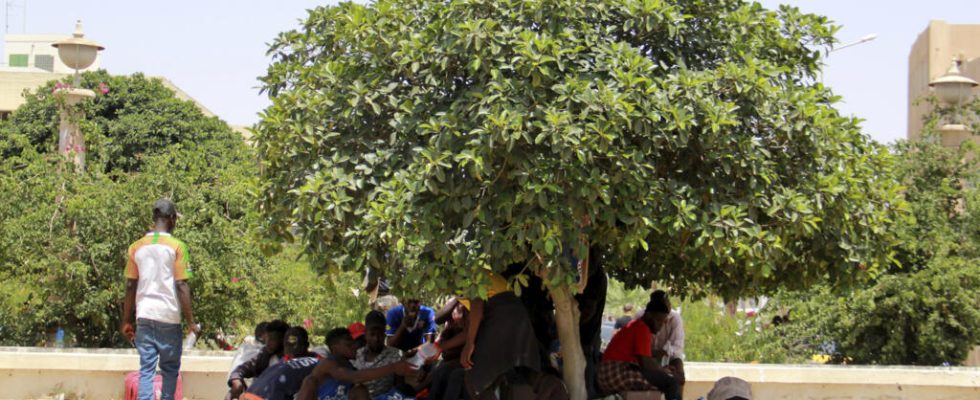In El Hamra, in the Sfax region (east of the country), several makeshift camps for sub-Saharan migrants living in the region’s olive groves were dismantled last week by the National Guard.
3 mins
With our correspondent in Tunis, Lilia Blaise
In a camp in El Hamra, a few hundred sub-Saharan migrants returned to settle after being chased away by the authorities on Monday April 22. The authorities justified these evacuations by the fact that certain migrants had damaged agricultural property in certain places, creating tensions with the neighboring population. The remains of the camp still litter the ground, burned and destroyed. Richard, a Cameroonian, said he was injured in the crush: “ I see a group come out of nowhere running with machetes, as if they were running away from someone. I turn to look the other way, I see a bullet come out of nowhere. »
According to several testimonies, a group of Ivorians with bladed weapons tried to fight with the authorities and it was their flight which then caused scuffles in their camp. Several migrants hung their backpacks on the olive trees, ready to flee again. Salvador, a Cameroonian, says he has nowhere to go: “ We’re not ready to leave. It’s not the first time, in November we had an attack of the same kind, we didn’t leave, until then we’re still here. »
A difficult daily life for residents
In El Hamra, various nationalities are present. Guineans, Malians, Burkinabè, Cameroonians. Everyone has been waiting to cross the Mediterranean, some for months, others who have just arrived like Diallo, a 25-year-old Guinean. He crossed the Algerian border at the beginning of the year, attempted a sea crossing from Sfax and was intercepted by the Tunisian coast guard. Then he was taken on a bus with others and sent back to Tébessa in the Algerian desert. He finally returned to El Hamra to try another departure but he did not expect the forceful evacuations last week. Today, he lives in fear of being repressed again by the Tunisian authorities.
“ We wait for them because every day, they can come, every day, every hour so we are there. People don’t even build somewhere to sleep. We sleep under the open sky, under the stars. Because when you do something, they come, they destroy. Even food, when they come, they destroy. They search pockets, clothes, to grab phones and check if there is money… that’s what we endure. Me as a Muslim, when I come to a country where there are Muslims, I think I won’t have problems if I don’t create problems. A lot of people think that too. But here, there, it’s Friday so even if you want to go to the mosque, pray there, you risk being caught by the police, by the National Guard. »
Most are waiting to be able to set sail for Europe, as evidenced by the remains of iron boats near the camp.
But for the farmers who live right next to the olive grove, the situation becomes untenable, as Houda Slimene, a farmer, explains: “ They tap on my window in the evening and ask me for food. They took away half of the irrigation pipes in my field as well as the stakes that I had put for my sheep. I don’t know what to do anymore, it’s not possible, I can’t even plant my vegetables anymore. »
Around 20,000 migrants have been living in these camps for months. Some have been there since mid-September, after being forced by the authorities to leave downtown Sfax.
